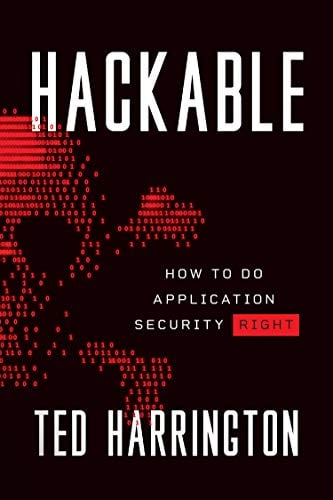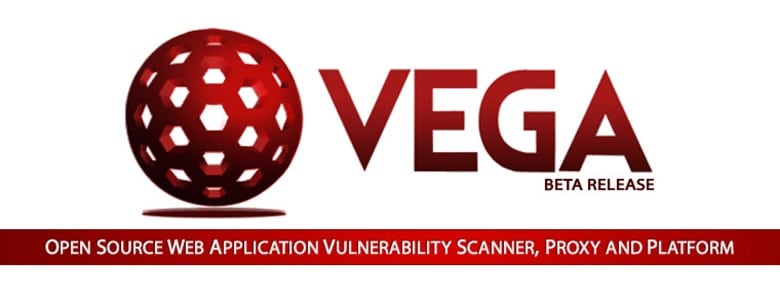Top 5 Web Application Security Scanners of 2018
Intro to Web Application Security Scanners
Web application plays an important role in an organization and possesses a great impact and gateway to organization's critical information. However, hackers always look ahead to breach into corporate information and application to steal confidential and critical information. For that, organizations need a web application security scanning solution that can scan for security loopholes in Web-based applications to prevent hackers from gaining unauthorized access to corporate information and data.
A web vulnerability scanner communicates with a web application through the web front-end to discover potential security vulnerabilities and architectural weaknesses. It does not access the source code and only performs functional testing to find security vulnerabilities.

11 courses, 8+ hours of training
There are a number of web security scanners available that are paid or free. Here we have discussed some of the top web security scanners that can help you to assess your web application to eliminate the security risks.
Burp Suite:
Burp Suite is a set of tools for evaluating web application's security. It is available in a free version with limited features and in a commercial version with maximum features. It is an integrated platform for security testing of web applications. Its diverse tools work flawlessly together to support the entire testing process, from initial mapping to finding and exploiting security vulnerabilities.
Burp Suite Features:
- An intercepting proxy, which lets you inspect and modify traffic between your browser and the target application.
- An application-aware spider, for crawling content and functionality.
- An advanced web application scanner, for automating the detection of numerous types of vulnerability.
- An intruder tool, for performing powerful customized attacks to find and exploit unusual vulnerabilities.
- A repeater tool, for manipulating and resending individual requests.
- A sequencer tool, for testing the randomness of session tokens.
- The ability to save your work and resume working later.
- Extensibility, allowing you to easily write your own plugins, to perform complex and highly customized tasks within Burp.

Netsparker:
With support for both detection and exploitation of vulnerabilities, Netsparker aims to be false positive–free by only reporting confirmed vulnerabilities after successfully exploiting or otherwise testing them. Netsparker finds and reports web application vulnerabilities such as SQL Injection and Cross-site Scripting (XSS) on all types of web applications, regardless of the platform and technology they are built with.
The Netsparker community edition is freely available for Windows platform; it can run on Windows XP, 7, Vista, 2003 and 2008. You do not need any security expert, training and long manual to understand and start Netsparker because it is GUI and easy to use.

Arachni:
Arachni is a feature-full, modular; high-performance Ruby framework intended to help penetration testers and administrators to assess the security of web applications. It is smart; it trains itself by examining and learning from the web application's actions during the scan procedure and can perform meta-analysis using a number of factors in order to assess the trustworthiness of results correctly and intelligently identify (or avoid) false-positives.
Arachni Features:
- Cookie-jar/cookie-string support.
- Custom header support.
- SSL support with fine-grained options.
- User Agent spoofing.
- Proxy support for SOCKS4, SOCKS4A, SOCKS5, HTTP/1.1 and HTTP/1.0.
- Proxy authentication.
- Site authentication (SSL-based, form-based, Cookie-Jar, Basic-Digest, NTLMv1, Kerberos and others).
- Automatic logout detection and re-login during the scan (when the initial login was performed via the auto login, login-script or proxy plug-ins).
- Custom 404-page detection.
-
UI abstraction:
- Command-line Interface.
- Web User Interface.
- Pause/resume functionality.
- Hibernation support -- Suspend to and restore from disk.
-
High-performance asynchronous HTTP requests.
- With adjustable concurrency.
- With the ability to auto-detect server health and adjust its concurrency automatically.
- Support for custom default input values, using pairs of patterns (to be matched against input names) and values to be used to fill in matching inputs.

W3af:
W3af (Web Application Attack and Audit Framework) is an open source web scanner that provides information about security vulnerabilities and aids in penetration testing efforts. It provides a vulnerability scanner and exploitation tool for Web applications. W3af is written in Python language and is available for many popular operating systems such as Microsoft Windows, Linux, Mac OS X, FreeBSD, and OpenBSD.
W3af is divided into two main parts, the core, and the plug-ins. It identifies most web application vulnerabilities using more than 130 plug-ins. The core coordinates the process and offers features that are inspired by the plug-ins, which find the vulnerabilities and exploit them. The plug-ins are connected and share information with each other using a knowledge base.

Vega:
Written in Java, Vega is a Gui based web scanner that is available for Windows, Linux and OS X. Vega is a free and open source web security scanner and web security assessing platform. Vega can facilitate you find and validate SQL Injection, Cross-Site Scripting (XSS), inadvertently disclosed sensitive information and other vulnerabilities.
Vega Features:
- Automated Crawler and Vulnerability Scanner
- Consistent UI
- Website Crawler
- Intercepting Proxy
- SSL MITM
- Content Analysis
- Extensibility through a Powerful Javascript Module API
- Customizable alerts
- Database and Shared Data Model

Conclusion
This is just a small list of some of the best application security scanner tools that you can use to assess web application against security vulnerabilities. However, there are many other tools as well, and the usage depends on the nature of web application. Moreover, using web scanners to assess web application is essential nowadays as hackers are coming back with enhanced strategies to compromise our data.







